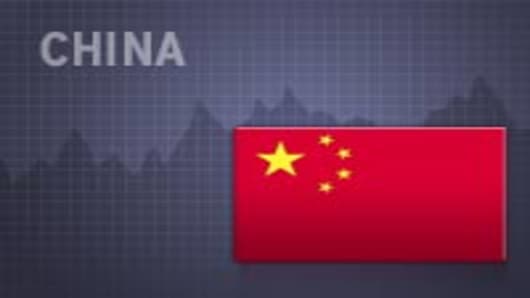China's economy slowed in the second quarter under the weight of slower exports and a drive by the central bank to tighten credit, but inflationary pressures remained uncomfortably high, the government said on Thursday.
Annual gross domestic product growth slowed to 10.1 percent in the second quarter from 10.6 percent in the first three months of the year and 11.9 percent in all of 2007, the National Bureau of Statistics (NBS) said.
While consumer inflation slowed to 7.1 percent in June from 7.7 percent in May, pipeline price pressures grew.
Factory-gate inflation accelerated to 8.8 percent in June -- the fastest annual rate since the mid-1990s -- from 8.2 percent in May.
"The figures are in line with expectations. They are unlikely to produce a policy response as producer prices are still a serious problem," said Ben Simpfendorfer, an economist with Royal Bank of Scotland in Hong Kong.
"But we expect growth to slow in the second half and we expect a loosening of credit controls in the second half," he said.
Zhao Qingming, a senior economist with China Construction Bank in Beijing, agreed: "As for monetary policy, I think the central bank will fine-tune in the second half, loosening the credit quotas on bank lending, which are hurting small firms."
Although growth is ebbing, the 10.4 percent pace for the first half means China is more likely than not to record a sixth straight year of double-digit growth in 2008, catapulting it above third-placed Germany in the global economic rankings.
Inflation has been propelled so far by food, which makes up a third of the consumer price basket and cost 20.4 percent more in the first half than a year earlier.
But economists are worried that inflation will become more broad-based as manufacturers, faced with shrinking profit margins, pass on rising costs for energy and raw materials.
"While inflation has been easing, it is still at a fairly high level," Li Xiaochao, the statistics bureau's spokesman, told a news conference. "If prices stay high for a long period, it's not good for the stable development of the economy and will affect people's lives, especially those with low incomes. So we have to continue with price controls, to control inflation," he said.
Li said China also faced increased uncertainty caused by global financial turmoil, which is sapping demand for China's exports.
"Looking forward, there are many downward risks for the economy. If macro policies are not fine-tuned in the second half, I'm afraid economic growth will be much lower in the coming months," said Zhu Jianfang, chief economist at CITIC Securities in Beijing.
"But we can see from official statements that the authorities have realized that and are ready to tweak policies. I think more policies to help exporters are in the offing and the yuan will rise much more slowly than in the first half," he said.


